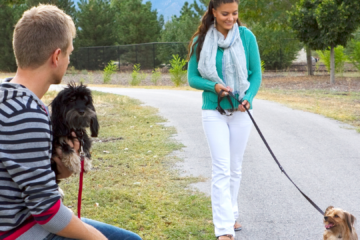Building friendships for our family members with disability isn’t easy.
How we define what a friend is will be really important for how we go about supporting friendships.
If we don’t know what a friend is, then how can we know if we have them or not and our strategies for making them are working?
Avoid Narrow Definitions of Friendships
We can often fall into the trap of defining a friend very narrowly leaving us to think that our sons or daughters don’t have any friends when actually they are there, hiding in the wings, ready to be nurtured even more.
Not thinking that we have any friends can lead to us not working on the relationships that we do have.
What is a friend?
So often when someone asks do you have any friends, we immediately think who do I go out with every week? Who invites me out all the time? While wanting to spend time with you can be an indication of being a friend, it’s not the only thing. Remember, more parties is not the goal. Good quality relationships with people is.
So while spending time with you is important, there are other things that can indicate that there is a friendship.
They also…..
- Show a genuine interest in you
- Accept you for who you are
- Listen without telling you how to think or feel, or trying to change the subject
- Gives to you in some way
- Feels comfortable sharing things about themselves with you
- Helps you out in an emergency
Remember an acquaintance can be someone who
- You see regularly
- You know their name
- You may know a little about them
But they are not a friend because they don’t do the things listed above.
Focus on how people make your family member with a disability feel
Instead of focusing on the number of times a person visits your family member, also remember to focus on how this person makes your family member feel:
- Do they feel better after spending time with this person?
- Do they act like themselves around this person?
- Do they feel secure, or do they feel like they have to watch what they say and do?
- Is the person supportive and treats your family member with respect?
- Does your family member trust them?
Friendships have a range
Remember that some friendships will be closer than others. Don’t discount the friends that don’t see your family member every week as not being friends because that will make you forget about nurturing that friendship.
Keep track of the people in your family member’s life and nurture them
The role of support workers is to keep an eye out for people that come into your family member’s daily life and nurture the relationships. To do that requires an awareness of who is there and to capture the history of the conversations had with this person.
Get your support workers to look out for people who are in the same places your family member goes on a regular basis. And get them to write them down and share with other supports. Keep a note of conversations with these people so that you can identify any shared interests they may have with your family member.
Here is an example:
Date: 24 Oct 20
Location: Fyshwick Markets
Person: Freda at the orange juice stall
Conversation history: I noticed Freda has a picture of a black cat on her coffee mug. I asked her who the cat was. She said her name was Lulu. Isaac also has a black cat. We used the PODD to tell Freda that Isaac has a black cat called Monty.
Next time: When we visit Freda again Isaac could show Freda a picture of Monty and tell him the funny story about how he hid in the book case at the vet’s.
Get support to learn and implement this framework to increase the likelihood of your family member with a disability forming friendships.


